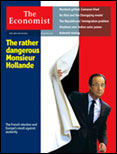Academy of Current Affairs (Online & Distance Learning)
|
|
|||
|
Political Thought: From Plato To The Present by M Judd Harmon |
|
Economist magazine subscription offers in Pakistan
|
|
Pakistan's premier website that covers current affairs and news.
House on Installments in Rawalpindi
Bloomberg Businessweek is home delivered in Pakistan
Honour Killing - a Hindu ritual
UK Integrated Review
The document is rich in ideas – though comes across a little muddled at places

3 Indo-Pacific Takeaways From the UK ‘Integrated Review’
The British government, on March 16, published a 111-page “Integrated Review of Security, Defense, Development and Foreign Policy” through which it seeks to chart a new, post-European Union, future for itself and establish a larger, multidimensional, global footprint. Observers had already noted that the widely anticipated (and delayed) review would be the first such since the end of the Cold War and could mark a fundamental shift in British security thinking.
“The world has changed considerably since the 2015 Strategic Defense and Security Review, as has the U.K.’s place within it.
Our departure from the European Union (EU) provides a unique opportunity to reconsider many aspects of our domestic and foreign policy, building on existing friendships but also looking further afield,” it noted as a foundational assumption, adding, “We must also do more to adapt to major changes in the world around us, including the growing importance of the Indo-Pacific region.”
While the review is indeed quite substantial, meriting a close examination – covering, as it does, the entire gamut of British security issues, ranging from emerging transnational threats to the U.K.’s nuclear posture – when it comes to the Indo-Pacific and China, three things stand out on a first, quick, reading. (The Diplomat’s defense columnist Jacob Parakilas, in a separate piece, raises difficult questions about Britain’s military wherewithal to support the strategy outlined in the review.)
System Structure: Multipolarity and Middle Powers Bet
The review makes a clear, unambiguous prediction about the future structure of the international system. It notes: “By 2030, it is likely that the world will have moved further towards multipolarity, with the geopolitical and economic center of gravity moving eastward towards the Indo-Pacific.” Within this change in the polarity of the international system, the document states:
Increasing great power competition is unlikely to mean a return to Cold War-style blocs. Instead, the influence of middle powers is likely to grow in the 2020s, particularly when they act together. In this context, the Indo-Pacific will be of increasing geopolitical and economic importance, with multiple regional powers with significant weight and influence, both alone and together
Without litigating the prognosis about the future structure of the international system (a strong case could be made that the international system is moving away from unipolarity to a nascent bipolar structure, with China emerging as a pole), the U.K.’s claim that middle powers will play a large role when acting in concert will come as music to the ears of many in Canberra, New Delhi, and Tokyo – and could also lead to greater British participation in small groupings involving these capitals
U.K.’s future posture towards China.
March 17, 2021
Also Read
Outer Space News: Earth's minimoon is gone but not forgotten
Blast in southwest Pakistan coalmine kills 7, injures 3
Share your views at feedback@newsflash.com.pk
Top stories
British PM to visit India in April.
Coronavirus: ECB recommends all recreation cricket is suspended indefinitely
How likely are you (yes, you) to die from the Covid-19 virus?
Send your contributions at editor@newsflash.com.pk

